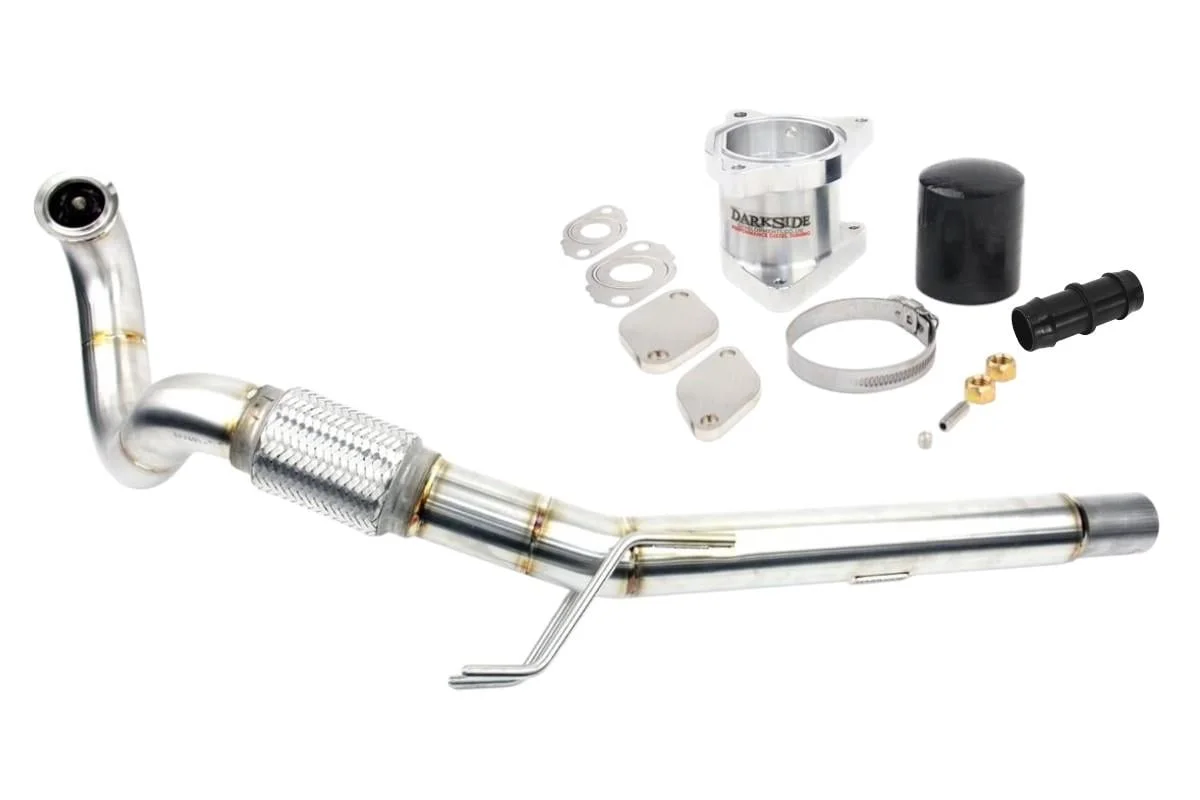If you drive a diesel truck, you’ve probably heard about EGR (Exhaust Gas Recirculation) and DPF (Diesel Particulate Filter) systems. These parts help control your vehicle’s emissions, making it more eco-friendly. But here’s the thing — some drivers consider removing them, or “deleting” them, to boost performance, improve fuel economy, or avoid costly repairs. Sounds tempting, right?
However, before you rush into a delete, it’s important to know that laws around EGR and DPF deletes are changing fast in 2025. What might have slid under the radar before could now land you in serious trouble!
What is an EGR Delete?
The EGR system (Exhaust Gas Recirculation) helps your engine run cleaner by recirculating a small amount of exhaust back into the engine to lower harmful emissions. It’s good for the environment but can cause carbon buildup over time, leading to performance issues.
An EGR delete kit removes this system completely. Some drivers say it gives better horsepower, fuel economy, and engine life. Sounds great, right?
But there’s a catch: deleting it increases pollution and can trigger warning lights or limp mode. Plus, it’s illegal under federal law unless the vehicle is used strictly off-road.
What is a DPF Delete?
The DPF (Diesel Particulate Filter) is designed to catch and trap soot from your diesel engine before it escapes into the air. It’s a critical part of keeping harmful emissions low and meeting environmental standards.
A DPF delete removes this filter entirely, which can boost your truck’s horsepower, improve fuel economy, and stop those annoying “regeneration” cycles. However, without a DPF, your truck dumps a lot more soot into the environment.
Not only does this harm air quality, but it also makes your truck illegal to drive on public roads under U.S. law.
Are EGR and DPF Deletes Legal in 2025?
In 2025, EGR and DPF deletes are still illegal under U.S. federal law, specifically the Clean Air Act. The Environmental Protection Agency (EPA) enforces strict rules to protect air quality, and deleting emissions equipment violates these rules — even if your state inspections seem relaxed.
The EPA has cracked down harder recently, with fines reaching up to $45,000 per violation for shops and thousands for individual drivers.
No major rule changes in 2025 — just tougher enforcement and bigger penalties.
Bottom line: If you delete, you’re risking huge fines and legal trouble.
State-by-State Differences
When it comes to emissions enforcement, some states are much stricter than others. States like California, New York, and Colorado have tough testing programs that check for missing or tampered emissions systems. If you get caught with an EGR or DPF delete there, you’ll likely face heavy fines, and your vehicle could even be impounded.
Other states, like Montana, South Dakota, and Florida, might not test diesels as aggressively. But don’t be fooled — deletes are still federally illegal everywhere in the U.S. Even in “relaxed” states, you’re still at risk if you’re pulled over or inspected.
Consequences of Illegal Deletes
Deleting your EGR or DPF might seem like a smart move for performance, but it can seriously backfire. Real cases show drivers and shops fined $10,000 to $180,000 for illegal deletes. Yikes!
You could also run into vehicle registration issues, especially in states with emissions testing — your truck might fail inspection and be banned from the road.
Worse yet, deleting emissions equipment can void your factory warranty and even cause insurance companies to deny claims if they find out.
Legal Alternatives to Improve Performance
Good news — you don’t have to risk huge fines just to boost your truck’s performance! There are plenty of EPA-compliant performance upgrades available today. These parts improve power and efficiency without breaking emissions laws.
Instead of deleting your EGR or DPF, consider professional cleaning services to restore their function and extend their life.
You can also install legal aftermarket parts like upgraded turbos, intercoolers, and tuners that are certified to meet emissions standards.
This way, you get better performance and stay street-legal. Win-win!
Common Myths About EGR and DPF Deletes
One big myth is that deleting your EGR or DPF automatically saves tons of fuel. While some drivers notice slight gains, many others see little to no improvement, and sometimes even worse mileage because the engine isn’t running efficiently without emissions controls. Like 6.0 powerstroke egr delete kit, suitable for 2003-2007 Ford Powerstroke diesel engines, is designed for off-road enthusiasts.
Another myth? “Nobody checks diesel trucks for emissions.”
That’s just not true anymore. In 2025, more states and federal agencies are cracking down with roadside inspections, DMV checks, and repair shop audits.
Thinking you won’t get caught could be a very expensive mistake!
FAQs
Q1: Is it illegal to delete the DPF in 2025?
Yes, it’s still illegal under federal law to delete the DPF in 2025. The EPA enforces this, regardless of your state’s testing requirements.
Q2: Can I legally delete my EGR system if I don’t live in California?
No, it’s illegal everywhere in the U.S. under the Clean Air Act, even if you’re not in California.
Q3: How much can you get fined for an illegal delete?
Fines can range from $10,000 to $45,000 per violation.
Q4: Are there any emissions-friendly tuning options available in 2025?
Yes, EPA-compliant tuners and performance parts can improve performance without violating emissions laws.
Q5: What if my state doesn’t require emissions testing for diesels?
You’re still breaking federal law, which can lead to fines and vehicle registration issues.
Q6: Can you reverse an EGR or DPF delete if needed?
Yes, but it can be costly and time-consuming to reinstall the necessary parts.
Q7: Do EGR/DPF deletes affect resale value?
Yes, deletes can decrease resale value, especially if the buyer needs to pass emissions tests.
Conclusion
In 2025, federal laws still dominate the legality of EGR and DPF deletes. While they may offer short-term performance gains, the long-term risks just aren’t worth it. From hefty fines to vehicle registration issues and voided warranties, the consequences can be severe.
Instead of deleting, consider legal alternatives like performance upgrades and proper maintenance to boost efficiency without breaking the law. Performance vs compliance isn’t a hard choice when you think about the potential costs. Stick to the rules, and you’ll enjoy peace of mind and a longer-lasting vehicle!






